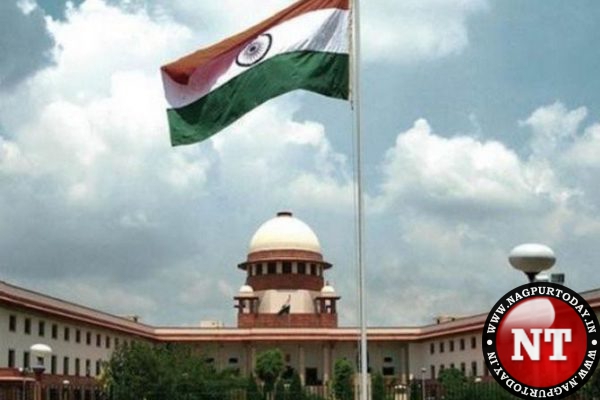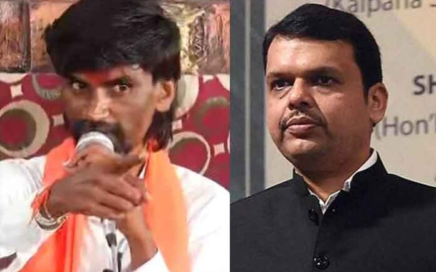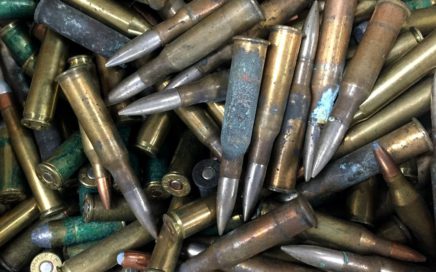
New Delhi: The Constitution bench of the Supreme Court has pronounced its verdict on a batch of petitions challenging the abrogation of Article 370 and bifurcation of the erstwhile state of Jammu and Kashmir into two Union Territories.
The top court upheld the government’s decision to abrogate Article 370 and said that steps should be taken to conduct elections in the Assembly by September 30 next year. SC also upheld the reorganisation of Ladakh as Union Territory.
Article 370, which was abrogated on August 5, 2019, was an interim arrangement due to war conditions in the erstwhile state, Justice Chandrachud said.
A five-judge constitution bench comprising Chief Justice of India DY Chandrachud, Justices Sanjay Kishan Kaul, Sanjiv Khanna, BR Gavai, and Surya Kant passed the judgment. On September 5, the apex court reserved the judgement after hearing the arguments for 16 days.
Prime Minister Narendra Modi has termed the Supreme Court verdict on the abrogation of Article 370 as “historic”. Taking to X (formerly Twitter), he wrote, “…Verdict today is not just a legal judgment; it is a beacon of hope, a promise of a brighter future and a testament to our collective resolve to build a stronger, more united India…”
Home Minister Amit Shah says SC’s verdict proved that the decision to abrogate Article 370 was completely constitutional. Shah also welcomed SC verdict on abrogation of Article 370 and added that the verdict proved that decision to abrogate Article 370 was completely constitutional.
The Supreme Court verdict on the pleas challenging the abrogation of the provisions of Article 370 of the Constitution is “disappointing” and justice has yet again “eluded” the people of Jammu and Kashmir, Peoples Conference (PC) chief Sajad Lone said on Monday. “The Supreme Court verdict on Article 370 is disappointing. Justice yet again eludes the people of J and K,” Lone said. He said Article 370 may have been legally obliterated, but will always remain a part of our political aspirations.
The Supreme Court while upholding the exercise of abrogating Article 370 also directed the Center to restore the statehood of Union territory of Jammu & Kashmir as early as possible.
Karti Chidambaram reacted to SC directing Centre to hold Assembly polls in J-K. While speaking to a news agency, he said, “I think elections should be held, people cannot be deprived of having their electoral representatives and the statehood must be restored immediately.”
On SC verdict on Art 370 in J&K, Shiv Sena (UBT) MP Arvind Sawant, “We welcome the decision but the things like rehabilitation of Hindus, putting an end to terrorism, making the people of J&K joining mainstream have not happened yet…”
The Supreme Court on Monday upheld the reorganisation of Ladakh as a Union Territory. The top court also asked the central government to hold elections in Jammu and Kashmir by 30 September 2024 and restore statehood at the earliest.
BJP President JP Nadda welcomed SC’s verdict on abrogation of Article 370. In a post on X, JP Nadda tweeted, “Bharatiya Janata Party welcomes the decision given by the Supreme Court regarding Article 370. The Constitutional Bench of the Supreme Court has upheld the decision given to remove Section 370 and 35A, its process and objective. The government of Prime Minister Narendra Modi ji has done the historic work of including Jammu and Kashmir in the main ideology of the country, for this I and crores of our workers express our heartfelt gratitude to the Prime Minister.”
On Supreme Court constitutionally validating the removal of Article 370 in Jammu and Kashmir, senior Congress leader and Maharaja Hari Singh’s son Karan Singh says, “A section of people in J&K who will not be happy with this judgment, my sincere advice is that they should accept the inevitable and they should accept the fact that now this has been done and the Supreme Court has upheld the action and therefore there’s no point now unnecessarily hitting their head against the wall. Now my suggestion is that they should turn their energies towards fighting the next elections. That is where the people should now be motivated instead of developing any negativity…”
‘Disappointed but not disheartened’ Omar Abdullah tweets after SC verdict. In a tweet, he wrote, “”Disappointed but not disheartened. The struggle will continue. It took the BJP decades to reach here. We are also prepared for the long haul.”
Ghulam Nabi Azad on SC verdict, says ‘people of J&K not happy.’ SC verdict sad and unfortunate, people of J&K not happy with it, but we have to accept it, he said.
Supreme Court Justice Sanjay Kishan Kaul in a separate but concurring judgement says Article 370 was meant to be temporary. Purpose of Article 370 was to slowly bring J&K at par with other Indian states. Requirement of J&K constituent Assembly’s recommendation in Art 370 can’t be read in manner making larger intention redundant, said Justice Kaul.
CJI says the principle of consultation and collaboration was not required to be followed for exercise of presidential power. Given the Centre’s submission on the restoration of statehood of Jammu and Kashmir, the court directs that statehood shall take place as soon as possible.
SC said, ‘We hold the exercise of Presidential power to be valid.’ No maladies in exercise of power under Article 370(3) by President to issue August 2019 order. Thus, we hold the exercise of Presidential power to be valid, says the Supreme Court.
CJI said, “The power of the President under Article 370(3) to issue a notification that Article 370 ceases to exist subsists even after the dissolution of the J&K Constituent Assembly. Recommendation of the Constituent Assembly was not binding on the President. J&K Constituent Assembly was intended to be a temporary body.”
CJI says ‘when Constituent Assembly of J-K ceased to exist, the special condition for which Article 370 was introduced ceased to exist.’














